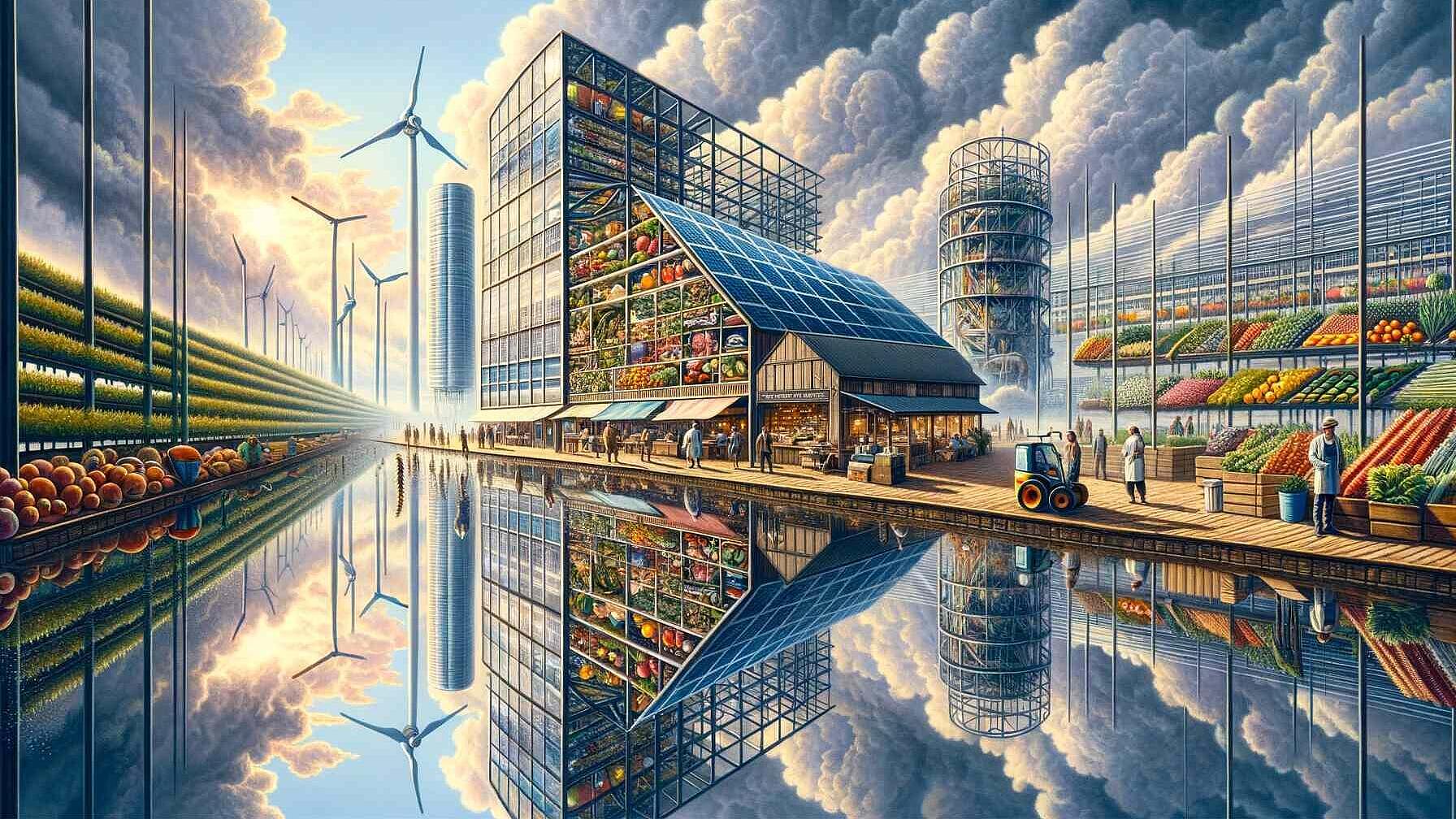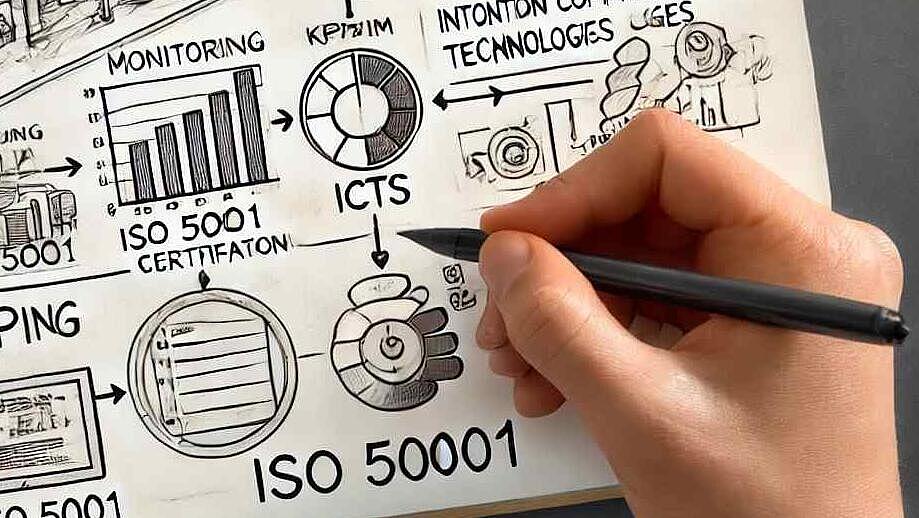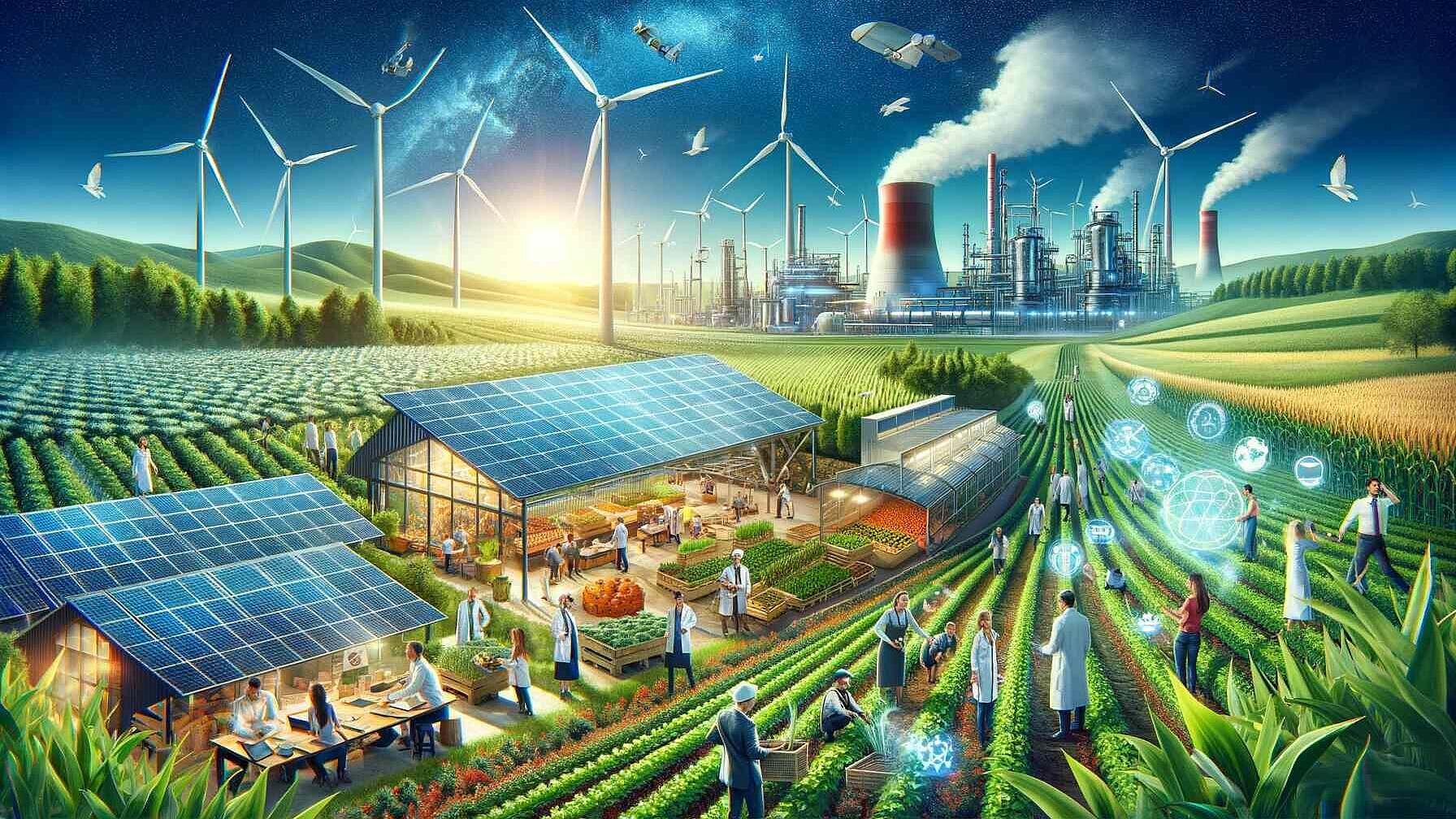 Renewable Energy
Renewable EnergyUnveiling the Energy Footprint of Europe's Food Sector
Zusammenfassung
The paper highlights the significant energy consumption of the European Union's food sector, which comprised 17% of the EU's total gross energy consumption and 26% of its final energy use in 2013. Agricultural activities, including crop cultivation and animal rearing, represent the largest energy demand within the food sector. Food waste is identified as an area with considerable potential for energy efficiency improvements, particularly through bioenergy production.
The paper reports that renewable energy use in the EU food system is low, with only 7% of food production and consumption energy coming from renewables, compared to the broader economy's 15%, while fossil fuels account for 79% of the food sector's energy. However, on-farm renewable energy production, especially biogas, is increasing and contributes to energy self-sufficiency as well as greenhouse gas (GHG) emission reductions.
Advances in energy efficiency are noted, with a decrease in food sector energy consumption from 2005-2013, despite higher output. Innovations in recovering energy from food residues, as well as improvements in transportation and packaging, have been beneficial. Consumer behavior also has a significant impact on the food sector's energy footprint, influenced by dietary choices and efforts to reduce food waste.
Lastly, the paper reviews EU and member states' policies and initiatives aimed at improving energy efficiency and increasing renewable energy in the food sector. An integrated approach is recommended to address the complexities of energy consumption in food production and its environmental impact.
Kompletten Artikel anzeigen
Unveiling the Energy Footprint of Europe's Food Sector
The European Union's food sector is a significant energy consumer, responsible for 17% of the EU's gross energy consumption and 26% of its final energy usage in 2013. The agricultural phase, including crop cultivation and animal rearing, is the most energy-intensive, consuming nearly a third of the total energy used in food production. Food waste emerges as a critical area for energy efficiency improvement, with large quantities produced at all food chain stages, offering potential for renewable energy sourcing through bioenergy production.
Transition to Renewable Energy
The EU's food system has lagged in integrating renewable energy, accounting for only 7% of energy use in food production and consumption, compared to 15% across the economy. The persistence of fossil fuels, constituting 79% of the food sector's energy, underscores the need for a strategic shift. On-farm renewable energy sources, particularly biogas, are gaining traction, offering energy self-sufficiency and contributing to the EU's energy production and GHG emission reduction.
Energy Efficiency and Innovation
Significant strides have been made in improving energy efficiency within the food sector, with a decline in energy consumption from 2005-2013 despite increasing output. Innovations in food processing industries to recover energy from food residues, alongside advancements in transportation and packaging, are pivotal. Consumer behavior, through choices like reducing meat consumption and minimizing food waste, plays a vital role in shaping the energy footprint of the food system.
Policy and Future Directions
The report elucidates the comprehensive policies and initiatives by the EU and member states aimed at enhancing energy efficiency and augmenting renewable energy use within the food sector. By evaluating sectoral literature, technology solutions, and EU-funded projects, the document advocates for an integrated approach addressing the complex dynamics of food production's energy consumption and its environmental implications.
To read the full document, please check here.
To learn more about why this is important for the EENOVA project,please check here.



